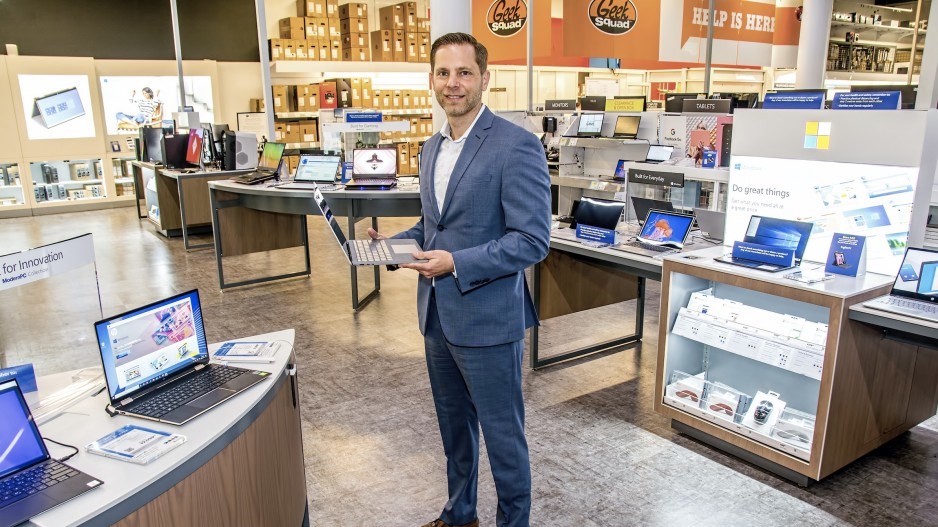Retailers are finding that the COVID-19 pandemic has recast the annual back-to-school shopping season into something never seen before.
Spending has shifted to computers, tablets and technology accessories and away from fashion and practical in-class items such as pens and paper.
Walmart Inc. (NYSE:WMT) executive vice-president and CFO Brett Biggs told analysts August 18 on a conference call that the back-to-school season will be “choppy and come later than normal.”
He added that “items like laptops, tablets and home office furniture are performing well, while others, like school supplies, backpacks and apparel are understandably soft.”
Retail analyst and DIG360 principal David Gray said B.C. retailers are seeing the same trends as the world’s largest retailer, ranked by revenue.
Normally what Gray considers back-to-school shopping starts after B.C. Day and ramps up in mid-August.
“You had the whole routine of buying in August – all your clothing, gym stuff, and electronics, pens, paper and notebooks,” Gray said. “This year is so different that people are going to pick up things as they need them.”
Gray teaches two entry-level courses at the British Columbia Institute of Technology (BCIT), and he said his students earlier this year started programs in the classroom, but were forced to move online when pandemic restrictions hit.
BCIT and most other post-secondary institutions are continuing virtual learning this fall, and likely winter, and Gray said that means a lot of students will need to upgrade devices and computer operating systems to ensure that they can fully participate in classes.
Burnaby-based Best Buy Canada is one of the beneficiaries of the shift toward technology spending. Shares in its parent company, Best Buy Co Inc. (NYSE:BBY), hit all-time highs several times in the past week, and are up more than 20% from February. The company earlier today released quarterly earnings that blew past analyst estimates, although the company gave a guarded outlook.
Best Buy Canada’s stores closed in March, and the company’s e-commerce sales surged. Stores then started to reopen in late May, and immediately found strong demand for in-store shopping, vice-president of merchandising Allan Kambeitz told BIV.
“It rebounded incredibly fast,” he said. “It was quite surprising how quickly people were embracing going back to the stores.”
He believes the in-store demand stemmed from people wanting to touch and feel products as well as being able to immediately buy needed equipment. This is despite free shipping for purchases over $35 and relatively speedy shipping from either a store or the company’s 435,000-square-foot distribution centre in Langley.
While demand for desktop, laptop and tablet computers has been strong, Kambeitz said demand for computer monitors, mice, keyboards and other accessories has likely been even stronger. Chromebook computers are also hot items. Some B.C. school districts have advised parents to buy the devices, which can have detachable keyboards and be used as a tablet or a laptop.
They are low-tech devices priced in the $200 range but Chromebook computers enable students to log into documents in the Google cloud so they can work on projects in-class or at home.
But Chromebook computers are not able to log into school district networks and cannot be used for any purpose involving personal information, School District 28 (Quesnel) said on its website.
Kobo and Amazon book-reader devices are other hot items, Kambeitz said, because many students realize that they can sometimes check out course books at libraries and save money.
Digital books may also be cheaper than hardcover books, said Retail Insider owner and retail analyst Craig Patterson.
“If they don’t have to buy $98 economics textbooks, buying a new tablet or whatever they need for their class work will not be as painful as an expense.”




